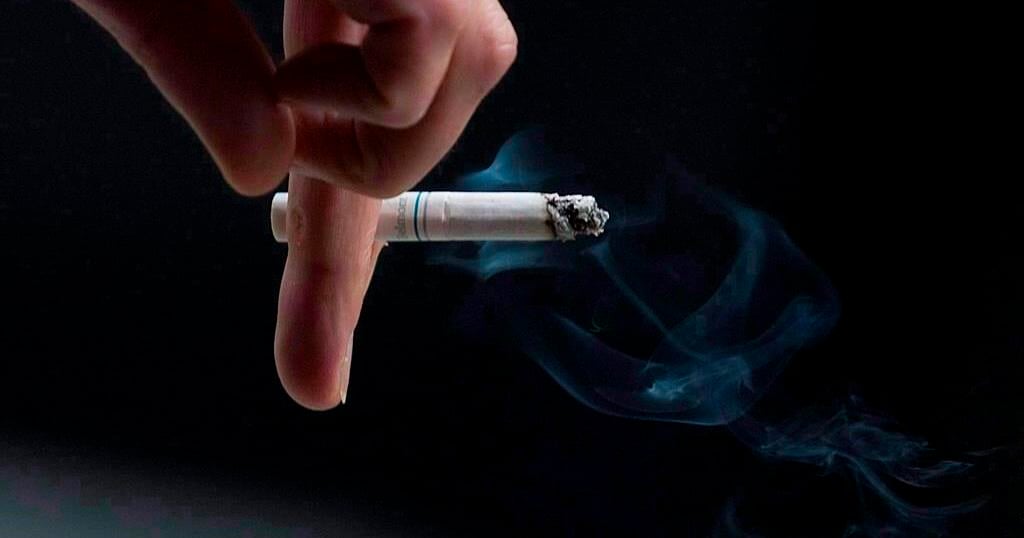Three tobacco giants are proposing to pay close to $25 billion to provinces and territories and more than $4 billion to tens of thousands of Quebec smokers and their loved ones as part of a corporate restructuring process triggered by a long-running legal battle.
A proposed plan of arrangement was filed in an Ontario court Thursday after the companies — JTI-Macdonald Corp., Rothmans, Benson & Hedges and Imperial Tobacco Canada Ltd. — spent more than five years in negotiations with their creditors.
The companies sought creditor protection in Ontario in early 2019 after they lost an appeal in a landmark court battle in Quebec.
The Ontario court put all legal proceedings against the companies on hold as they tried to work out a deal with their creditors, which include the plaintiffs in two Quebec class-action lawsuits as well as provincial governments seeking to recover smoking-related health-care costs.
Under the proposed plan filed Thursday, provinces and territories would receive payments over time, with roughly $6 billion to be paid out when the deal is implemented.
The Quebec plaintiffs would file claims for compensation of up to $100,000 each.
The proposed plan also includes more than $2.5 billion for smokers in other provinces and territories who were diagnosed with lung cancer, throat cancer or chronic obstructive pulmonary disease between March 2015 and March 2019. They would be eligible for up to $60,000 each.
Bruce W. Johnston, one of the lawyers for the Quebec plaintiffs, said the proposal is “historic and unprecedented” because it allows for the compensation of smokers as well as governments.
“When we took this case, there had never been a single plaintiff who had received a single penny from a tobacco company,” he said Thursday.
“We took this case in 1998 and as a result of our case, not only will tens of thousands of victims be compensated by the tobacco industry in Canada, most of them in Quebec, but also governments are going to be sharing $24 billion.”
The plaintiffs have endured lengthy delays and now they can finally see that there’s “probably a light at the end of the tunnel and that they will receive compensation,” he said.
While many of the class-action members died before they could receive any money from the companies, their successors — and in some cases, their successors’ successors — will be eligible for compensation, he said.
The proposed deal would also see the companies pour more than $1 billion into a foundation to fight tobacco-related diseases. That amount includes $131 million taken from the money allocated to the Quebec plaintiffs.
The proposal must still go through several steps before it can be put into action, including a vote by creditors and approval by the court.
Negotiations between the companies and their creditors were confidential, so the class-action members couldn’t know how things were progressing and many didn’t understand why it was taking so long, Johnston said.
Several health-care groups argued the lack of transparency surrounding the talks would benefit the companies at the expense of other stakeholders.
As recently as last month, three groups — Action on Smoking & Health, Physicians for a Smoke-Free Canada and the Quebec Coalition for Tobacco Control — said recent court filings suggested the provinces had agreed to a process that would give the companies veto power over the final deal.
The groups have consistently urged the provinces to impose regulations and smoking-reduction measures as part of a deal with the companies.
Some organizations, including the Canadian Cancer Society, were also calling for a deal to involve the public disclosure of internal company documents.
Rob Cunningham, a lawyer for the Canadian Cancer Society, said the proposed deal is “the most significant proposed settlement in the world outside of the United States” in a case of its kind so far.
But unlike the global settlement reached with tobacco companies in the U.S. in the late 1990s, it doesn’t include policy measures aimed at reducing tobacco use or any public disclosure of documents, he said.
He said the cancer society, which has been named a social stakeholder in the case, will review the details of the roughly 1,400-page proposal and make submissions as part of the approval process.
The Quebec lawsuits involved smokers who took up the habit between 1950 and 1998 and fell ill or were addicted. Heirs of such smokers were also party to the suits.
Court filings from last year suggest hundreds of the class-action members have died since the creditor protection proceedings began.
This report by The Canadian Press was first published Oct. 17, 2024.
